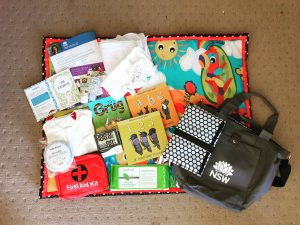In India, there’s no fall season. We experience intense heat during the Shraddh days and then immediately start experiencing chill in the air with the Navratri festival culminating into Diwali festival. During this time, with the rise of dust in the atmosphere, respiratory distress is commonly experienced by babies and adults.
Did you know?
Babies breathe faster than older children and adults. A new born baby’s normal breathing rate is around 40 to 60 times per minute. This may slow to 30 to 40 during deep sleep.
Also, your baby’s lung volume increases in size rapidly in the first 2 years of life. By the time they are 3 years old, their lungs look like the mini version of adults.
If you want to get prepared for combating the respiratory distress in kids you can check out for these signs and work towards ensuring that your babies are least uncomfortable.
- The breathing rate if increase in number of breaths per minute; it might indicate not getting enough of oxygen and hence trouble in breathing
- Increase heart rate is another factor that you need to look at
- Pale or grey or perhaps bluish tinge of skin color around the mouth, inside of the lips and fingertips can indicate lack of oxygen
- A grunting sound at the time of exhalation
- Flared nostrils indicate that the person has a hard time breathing
- The chest tries to sink in more to get the air inside the lungs
- Increase in sweating on the head but the body isn’t that warm when touched
- A slight whistling or musical sound while breathing in air
What to do when you notice these symptoms?
Prevention is the first step before anything like this happens to your baby. After all, you would not want to go through the hassles of an uneasy, cranky and restless baby who is unable to comprehend all the problems.
- Avoid smoke zones or places like havan or puja places
- Ensure that the baby is in dust free room or place
- Air ventilation is important in your home or baby’s room
- Netlon or mesh windows and or doors help keep carriers of dust and germs at baby
- Sunlight and air is important for baby’s development but avoid windy places in this ‘in between the season’ phase
- Ensure that they are not allergic to dust or pollen that rises in the air at this time of the year due to changes in the winds.
- Ask the pediatrician for any supportive or awareness points so that you can keep your baby well protected and healthy.
Worry not if your baby catches a cold and cough or respiratory distress. Seek help from a doctor or a professional health care person and ensure that your baby is medicated and comfortable.



